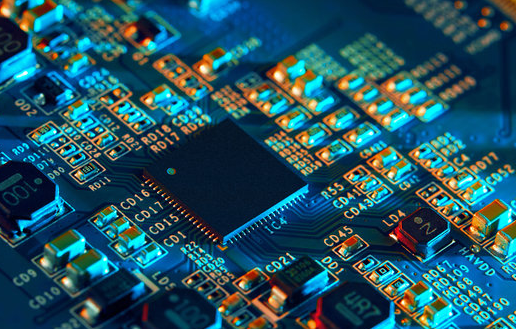This content originally appeared on DEV Community and was authored by wangsheng
The SP3232EEN is a robust RS-232 transceiver that bridges TTL/CMOS logic levels and RS-232 signals. With built-in charge pump technology, ±15kV ESD protection, and automatic power-down, it is widely used in embedded devices, industrial automation, and IoT hardware.

 Key Features
Key Features
Operating Voltage: 3.0V – 5.5V
Data Rate: Up to 1 Mbps
Protection: ±15kV ESD on RS-232 pins
Auto Power Saving: Automatic shutdown when idle
Package: SOIC-16 for compact PCB designs
 How It Works
How It Works
The SP3232EEN internally includes:
Charge Pump Circuit – generates ±10V levels from a single 3V–5V supply, eliminating the need for external dual supplies.
Level Shifters – translate microcontroller UART signals (0–3.3V/5V) to RS-232 voltage swings (±12V).
ESD Protection – ensures robust communication in noisy industrial environments.
 Typical Applications
Typical Applications
MCU UART  RS-232 conversion
RS-232 conversion
Industrial controllers and PLCs
Debug and console serial ports
POS systems and handheld devices
Networking equipment
 Pinout Reference
Pinout Reference
T1IN / T2IN → TTL/CMOS transmit inputs
T1OUT / T2OUT → RS-232 transmit outputs
R1IN / R2IN → RS-232 receive inputs
R1OUT / R2OUT → TTL/CMOS receive outputs
VCC → Power supply
 Circuit Connection Example
Circuit Connection Example
+5V
|
VCC
|
MCU TX —-> T1IN T1OUT —-> RS232 RX
MCU RX <—- R1OUT R1IN <—- RS232 TX
|
GND ——————————- GND
This simple wiring allows a microcontroller (e.g., STM32, Arduino, ESP32) to communicate with a legacy RS-232 device such as a modem, CNC controller, or industrial sensor.
 Example Implementations
Example Implementations
1⃣ Arduino UART  RS-232
RS-232
include
SoftwareSerial rs232(10, 11); // Arduino pins -> SP3232EEN
void setup() {
Serial.begin(9600);
rs232.begin(9600);
Serial.println(“SP3232EEN RS232 Communication Started”);
}
void loop() {
if (Serial.available()) {
rs232.write(Serial.read());
}
if (rs232.available()) {
Serial.write(rs232.read());
}
}
2⃣ Python + PySerial
import serial, time
ser = serial.Serial(port=”COM3″, baudrate=9600, timeout=1)
if ser.is_open:
print(“Connected to RS232 via SP3232EEN”)
while True:
ser.write(b’Ping\n’)
time.sleep(1)
if ser.in_waiting > 0:
print(“Received:”, ser.readline().decode().strip())
3⃣ STM32 HAL UART
include “main.h”
include “usart.h”
include “string.h”
uint8_t txData[] = “Hello RS232 via SP3232EEN\r\n”;
uint8_t rxData[100];
int main(void) {
HAL_Init();
SystemClock_Config();
MX_USART2_UART_Init();
while (1) {
HAL_UART_Transmit(&huart2, txData, strlen((char*)txData), HAL_MAX_DELAY);
HAL_Delay(1000);
if (HAL_UART_Receive(&huart2, rxData, sizeof(rxData), 1000) == HAL_OK) {
printf("Received: %s\r\n", rxData);
}
}
}
 Debugging & Common Issues
Debugging & Common Issues

No response from RS-232 device → Check GND reference between MCU and RS-232 device.
Garbled data → Ensure baud rate, parity, and stop bits match.
Overheating → Verify correct power supply (3.3V/5V) and that TX/RX lines aren’t shorted.
Idle high voltage mismatch → Confirm TX polarity matches RS-232 standard.
 Future Outlook & Alternatives
Future Outlook & Alternatives
While the SP3232EEN is an industry-proven solution, engineers looking for alternatives may also consider:
MAX3232 – pin-compatible RS-232 transceiver with similar specs.
ADM3202 – higher ESD protection and lower power consumption.
SP3238E – supports multiple transmitters for more complex designs.
 Why Choose Censtry for SP3232EEN?
Why Choose Censtry for SP3232EEN?
At Censtry Electronics, we supply genuine and high-performance components such as the SP3232EEN, trusted by engineers worldwide for industrial and embedded applications.
 Contact us: sales@censtry.com
Contact us: sales@censtry.com
This content originally appeared on DEV Community and was authored by wangsheng